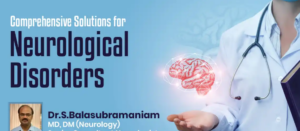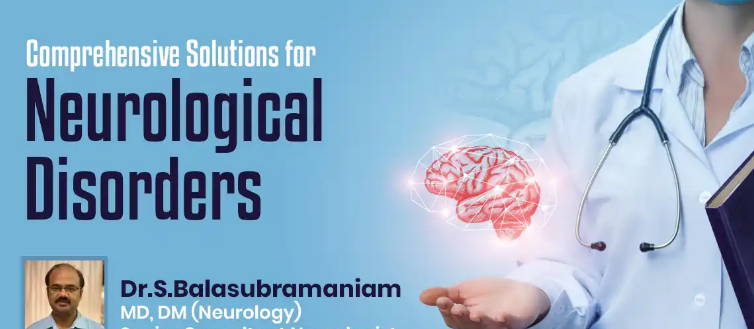Why Neurosurgical Care is Important in Neurological Disorders
Neurosurgical care plays a very important role in diagnosing, treating, and managing a wide array of neurological disorders. Such disorders, affecting the brain, spinal cord, and peripheral nerves, can have profound impacts on an individual’s quality of life, ranging from chronic pain and loss of motor function to life-threatening conditions such as brain tumors. Neurosurgical interventions are often critical in the management of such conditions. Here is why neurosurgical care is indispensable:
1. Life-Saving Interventions
Brain tumors, aneurysms, and traumatic brain injuries are examples of disorders that require immediate neurosurgical intervention for saving the life of a patient. Neurosurgeons perform life-saving surgeries like craniotomies to remove tumors, repair blood vessels, or relieve pressure within the skull. The timely surgical intervention prevents further damage to the brain and other critical structures, significantly improving survival rates.
2. Treatment of Structural Abnormalities
Many neurological conditions are caused by structural problems, such as in the case of herniated discs, spinal stenosis, or even congenital abnormalities of the brain or spinal cord. Neurosurgery is used to correct such defects, which very often cannot be corrected by non-operative treatments. The surgeries, including laminectomies, discectomies, and fusions, aim at the restoration of normal anatomy, pain relief, and improved function.
3. Management of Chronic Neurological Conditions
Neurosurgery has been able to offer long-term effective treatments for conditions such as epilepsy, Parkinson’s disease, and chronic pain syndrome. Other techniques, including deep brain stimulation (DBS), vagus nerve stimulation (VNS), and spinal cord stimulators, can relieve symptoms in patients for whom medication is either ineffective or carries intolerable side effects. Surgical intervention, in these cases, can greatly improve the quality of life by reducing symptoms and improving functionality.
4. Restoration of Function
Neurosurgery can retrieve lost neurological function due to trauma, stroke, or degenerative diseases. Such as, decompressive surgery may help in preserving or restoring motor and sensory functions after a spinal cord injury. In stroke cases, neurosurgical intervention such as thrombectomy can promptly restore blood flow to the brain, reducing the extent of brain damage and therefore improving recovery outcomes.
5. Relief from Intractable Pain
Neurosurgical interventions provide relief to many patients suffering from intractable pain, such as trigeminal neuralgia or chronic back pain. Microvascular decompression, rhizotomy, or spinal cord stimulation is the treatment method for pain that acts on its very cause and is applied when conservative treatment has failed. Neurosurgery can be an important option for these patients in order to restore normal life activities and alleviate their suffering.
6. Improvement in Technology and Precision
Large technological steps with huge consequences involve the facilitating of modern neurosurgical care by huge technological advances in minimally invasive techniques, robotic-assisted surgery, and neuro-navigation systems. These tools have indeed empowered neurosurgeons to conduct high-precision operations with lessened damage to surrounding healthy tissue, quicker recovery times, and lesser complications associated with surgery. Such precision has been essential in handling delicate and complex neurological structures.
7. Diagnosis
Neurosurgical care is an important modality of diagnosis, aside from treatment, in neurological disorders. Stereotactic biopsies are procedures that neurosurgeons perform to get samples from the brain or spinal cord, which help in diagnosis, such as brain tumors, infections, or autoimmune diseases. This accurate diagnosis is critical to identify the appropriate course of treatment.
8. Multidisciplinary Approach
Neurosurgical care is often provided in a multidisciplinary manner with cooperation among neurologists, oncologists, radiologists, and rehabilitators. All aspects of care, from preoperative diagnosis and planning to postoperative recovery and rehabilitation, are serviced under one network of care. Neurosurgeons provide the surgical competence in the center of this team for the success of the treatment.
9. Emergency and Trauma Care
Neurosurgical care may spell the line of life and death in emergency situations such as severe head injuries, spinal fractures, or hemorrhagic strokes. Rapid surgical intervention will stabilize the patients by controlling bleeding and preventing secondary damage, thus giving the best chance for recovery. The neurosurgical expertise in trauma centers is extremely important in the management of such acute neurological emergencies.
10. Palliative and Supportive Care
For the neurologic patient who is terminally ill-such as a patient with advanced brain cancer or a neurodegenerative disease-neurosurgical comfort and palliation is possible. Surgery can alleviate symptoms, reduce pain, and diminish complications to make the rest of a patient’s life easier and more comfortable for the patient and family.
Conclusion
Neurosurgical care has become a cornerstone in the treatment and management of neurological disorders by offering life-saving interventions, restoring function, and improving quality of life in patients. With advanced technology integration, precision medicine, and a multidisciplinary approach, neurosurgery will continue to play a crucial role in responding to the challenges of neurological diseases.

Also Read :
